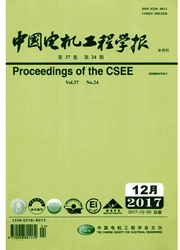

 中文摘要:
中文摘要:
建立动态模拟模型,对多种机制下发电投资的周期性波动问题进行了全面模拟分析。研究证实,在理想情况下单一能量机制可以缓解并最终消除发电投资的周期性波动,而在非理想情况下即使容量费用足以回收投资成本,但是决策环境的不确定性也会阻碍机制对于发电投资的调节作用。由于独立市场运营方发布的长期负荷预测比投资者自身预测更为客观正确,而倾斜的容量需求曲线也能够及时提供适当的容量价格信号,因此可靠性定价机制(reliability pricing model,RPM)可以很好地引导发电投资并降低用户购电成本。该模型方法在现有相关研究成果中并不多见,所得模拟结果对于我国未来电力市场机制设计兼顾协调“有效吸引发电投资”和“促进市场效率提高”这两个目标具有重要参考价值。
 英文摘要:
英文摘要:
A dynamic simulation model of generation capacity investment was established, and the periodical fluctuation of generation investment was simulated and analyzed under several mechanisms. The simulation results show that fluctuation of generation investment can be gradually dampened under the energy-only mechanism in perfect environment. However, in imperfect conditions, neither the energy-only mechanism nor the capacity payment mechanism leads a sufficient and robust generation investment. Because the long term load forecast made by the ISO 3 years before the delivery year is more accurate than those made by the investors, and the downward sloping demand curve gives a capacity price signal that is more flexible, the reliability pricing model (RPM) is capable of leading sufficient generation investment and reducing electricity procurement cost. The model and its simulation result are valuable in the future market mechanism design in China, especially for the coordination between the goals of adequate generation investment and high market efficiency.
 同期刊论文项目
同期刊论文项目
 同项目期刊论文
同项目期刊论文
 Research on parameter design of competitive generation markets based on dynamic simulation and cloud
Research on parameter design of competitive generation markets based on dynamic simulation and cloud 期刊信息
期刊信息
